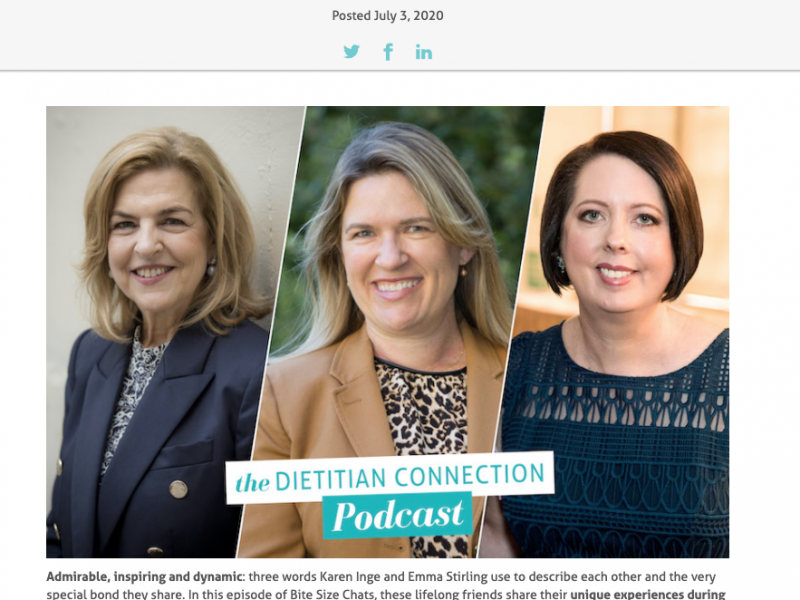The science of weight management is getting more and more complex as we get closer and closer to unravelling the secrets to success. And there’s no more complex field than research on the countless hormones that help harness or harrass your hunger. We caught up with an expert in the field for the latest practical tips.
Melanie McGrice is an Advanced Accredited Practising Dietitian with a Masters Degree in Dietetics. She is the director of Health Kick Nutrition & Dietetics, which has a number of centres around Melbourne and runs courses for clients and health professionals on weight management. Melanie is the chairperson of the Dietitians Association of Australia Obesity Group and has co-authored seven papers published in peer-reviewed scientific journals to date. Melanie is regularly interviewed for television news, current affairs and lifestyle programs.
Want to lose weight, but struggling to fight the growling and rumbling ache gnawing in your stomach? It’s hard to say “no” when your belly is empty and your best friend is waving a thick slice of chocolate cake in front of your nose, isn’t it?!
Dieters look upon “skinny people” with jealously of their iron wills and conviction to ask for the salad instead of the fries. But, let me let you in on a secret – it is easier for them to say no! After years of studying the science of weight loss, I’m now convinced that taming your hunger hormones is one of the strongest weapons that you can use to avoid weight gain. “Skinny people” have grown up with a better metabolism, and training from birth on how to eat to manage their hunger hormones and stay slim. Let me give you a few tips on how you can manage your hunger hormones….
Eat slowly
Cholecystokinin is a hormone which is produced in the small intestine. It is produced when food starts entering the small intestine approximately 20-30 minutes after a meal, and once it is triggered it tells the body to stop eating. So, eat slowly, so that you eat less! Half a sandwich has half of the kilojoules of a whole sandwich!
The first step to mindful eating is taking the time to source and prep beautiful food – Emma, Ed. Source: jennyshus.webblogg.se via Emma on Pinterest
Eat regularly
Four to five hours after your last meal, a hormone called ghrelin is produced by the stomach to stimulate your hunger, and remind you that it’s time to eat again (this is why most people get peckish at about 4pm – as it’s about 4 hours since lunch). Listen to your body, and have something nutritious to eat. Ignoring your hormones and skipping meals, causes havoc to your hormones, and will make you crave something higher in kilojoules later.
Get at least 7 hours sleep each night
Leptin is a hormone that tells you brain to stop eating. During sleep, leptin levels usually rise (so that you don’t feel hungry while you’re sleeping, of course), but for people who don’t get enough sleep, and people who don’t sleep well, less leptin is produced, making poor sleepers not only tired the next day, but hungry too. Studies consistently show that people who sleep for less than seven hours per night are more likely to be overweight.
Get some daily ‘me’ time
High stress levels increase our body’s production of cortisol, a hormone which can lead to increased fat deposited around the waist line. A little bit of stress is fine, but if you’re under high levels of stress for long periods of time, stop and think about what you can do to reduce your stress levels – for the sake of your health.
I’m seriously thinking of building my own cubby or caravan for daily me time – Emma, Ed. Source: apartmenttherapy.com via Emma on Pinterest
Maintain your muscle mass
Many people worry more about their body ‘weight’ than their body ‘fat’. Having a high percentage of body fat and a low percentage of muscle mass can mean that your insulin hormone doesn’t function as well as it should. Insulin is responsible for maintaining blood glucose levels, and when this is working efficiently, it can contribute to increased hunger. Maintain your muscle mass by ensuring that you are eating adequate protein each day, undertaking daily exercise and avoiding fad diets which break down muscle tissue.
Start exercising
Have you ever wondered why some people put themselves through ironman competitions and marathons? They’re addicted to the endorphin high! When we exercise at a high intensity for long periods (over 30 minutes) hormones called endorphins are produced. These hormones decrease appetite, reduce anxiety and create a feeling of euphoria. Build up your exercise until you start experiencing endorphin release, and I’ll bet you’ll be hooked.
Learn how to put the science into practice
Our company, Health Kick Nutrition & Dietetics runs courses for people to learn how to achieve sustainable weight loss and for health professionals to learn how to teach the science. We are passionate about using evidence-based data to deliver lasting results, rather than just the latest quick fix. Understanding how hormones affect your appetite, and modifying the way that you eat to optimise these hormones plays a key role in achieving a healthy weight.
Editor’s comment:
Thanks Mel. I’m getting hungry just reading this post. I think it’s an occupational hazard to be on twitter and social media, as there are so many scrummy photos each day. I find that I need to put stops into my day, to curb my eating. I like to stop at night by brushing my teeth early in the evening after dinner – unless of course it’s Friday night wine’o’clock. How about you lovely readers, do these tips ring true? Do you have a me-time space of your own? Love you to say hi below.





